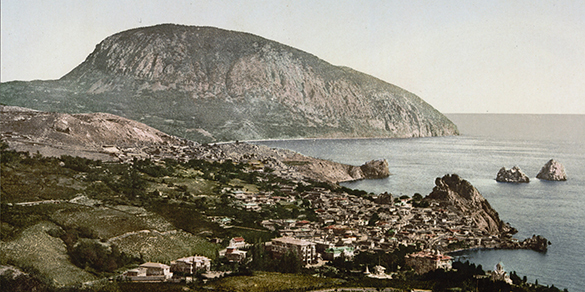French MPs come to Russia's Crimea to learn the truth
On July 22, a group of French MPs - republicans, leftist and centrist parliamentarians arrived in the Crimea. During their stay on the peninsula, the officials intend to learn more about its residents and assess the level of living standards in the region to give French citizens firsthand information about life in Russia's Crimea. Pravda.Ru asked senior researcher at the Center for European Studies at the Institute of World Economy and International Relations, Vladimir Olenchenko, to comment on the situation.

"I'd like to see a noble purpose here. I'd like to believe that the French MPs came to the Crimea to see real life there with their own eyes. The propaganda machine works in the Western media to create an impression that the territory was annexed forcefully, against people's will. Many Western publications say that the living standard on the peninsula has declined. In a nutshell, they say only negative things. I would like to see this visit as the beginning of the process of normalization of relations. The Japanese have visited the Crimea before, but they were not parliamentarians. Maybe, the visit of the French MPs will become an example for others to follow," said Vladimir Olenchenko.
Almost all of the French visitors are members of the right-wing Republicans Party, which is not a pro-Russia party at all. Why did the French decide to act so? The French media believe that the MPs came to the Crimea to sound out possibilities for the political course of the next president of France.
"I think there are two motives. The first one is to simply have an opinion, because it's always interesting to listen to someone who express their opinion. The second motive is connected with a search for reserves for the presidential campaign. Smart and far-sighted policy-makers always look for opportunities to attract electorate's attention and support. Russia and France have traditionally had close relations. In France, there are many people who are not biased about Russia. Those people, who intend to take part in next year's pre-election campaign, may consider changing France's attitude to cooperation with Russia. One needs to have some substantial material for that," said the expert.
If Nicholas Sarkozy takes office as president again, will he improve relations with Russia? Will France lift sanctions against Russia if Sarkozy wins?
"There is a big difference between Nicholas Sarkozy and sitting President Francois Hollande. Sarkozy is a leader, who knows how to make decisions and demonstrate political will. In 2008, when then-President of Georgia Mikhail Saakashvili launched military operations in the Caucasus, including against Abkhazia, Russia intervened and repulsed the aggression. Sarkozy was the only politician who did not hesitate to come into contact with the Russian side and offered his own plan that eventually worked and cease-fire was reached. That was a very vivid example proving that Sarkozy had no prejudice," Vladimir Olenchenko said.
Yet, there is another force - Germany. Janis Varoufakis (former Greek finance minister) said in a recent interview with a British newspaper said that Germany was deciding everything in the European Union. Can France run its own policy that would not depend on the policies of Germany and the USA?
"During Sarkozy's presidency, there was a very close and constructive dialogue between France and Germany. The EU was originally an economic formation that gradually acquired political colors. Speaking of the economic side, Germany produces more than 20 percent of EU's GDP. Germany has a right to determine the foreign policy of the European Union. Germany is naturally recognized as the leading state of the EU, and there are reasons for that. Germany's views and objectives may not coincide with those of other EU countries, but this is a topic for a separate conversation,"- concluded Vladimir Olenchenko.
Meanwhile, Russia has proved to be more competitive than the United States, experts at the Boston Consulting Group said. This became possible owing to the weaker ruble and declining prices on oil.
According to BCG, the competitiveness of the United States has been continuously growing vs. the competitiveness of all other countries during the recent ten years. The research was based on indicators of economies of 25 countries that account for almost 90 percent of world exports of manufactured goods.
The index consists of four components: wage level, labor productivity, energy costs and national currency exchange rate. In 2015, the index for Russia amounted to 90% (100% for the US), having dropped by nine percentage points.
In general, the gap in competitiveness of the States vs. other countries began to decline in 2015 against the strengthening dollar.
Earlier, Bloomberg experts concluded that the Russian market has become the most profitable one for investors in 2015 among BRICS countries, having pushed China from the first position. According to the agency, investors are less worried about Russia after the fall of oil prices and the collapse of the Russian ruble in December 2014. Many already believe that political risks are going to decrease as well.
To crown it all, Russia has climbed 29 positions up in the index of human capital, experts at the World Economic Forum in cooperation with international consulting firm Mercer said.
Pravda.Ru
Subscribe to Pravda.Ru Telegram channel, Facebook, RSS!


